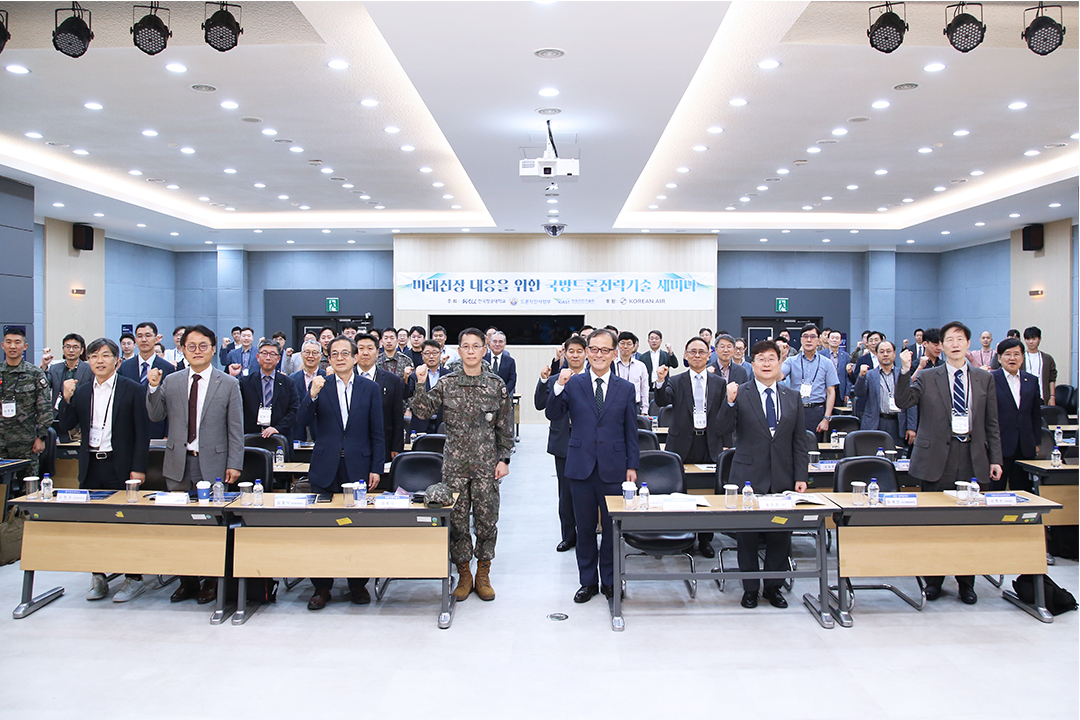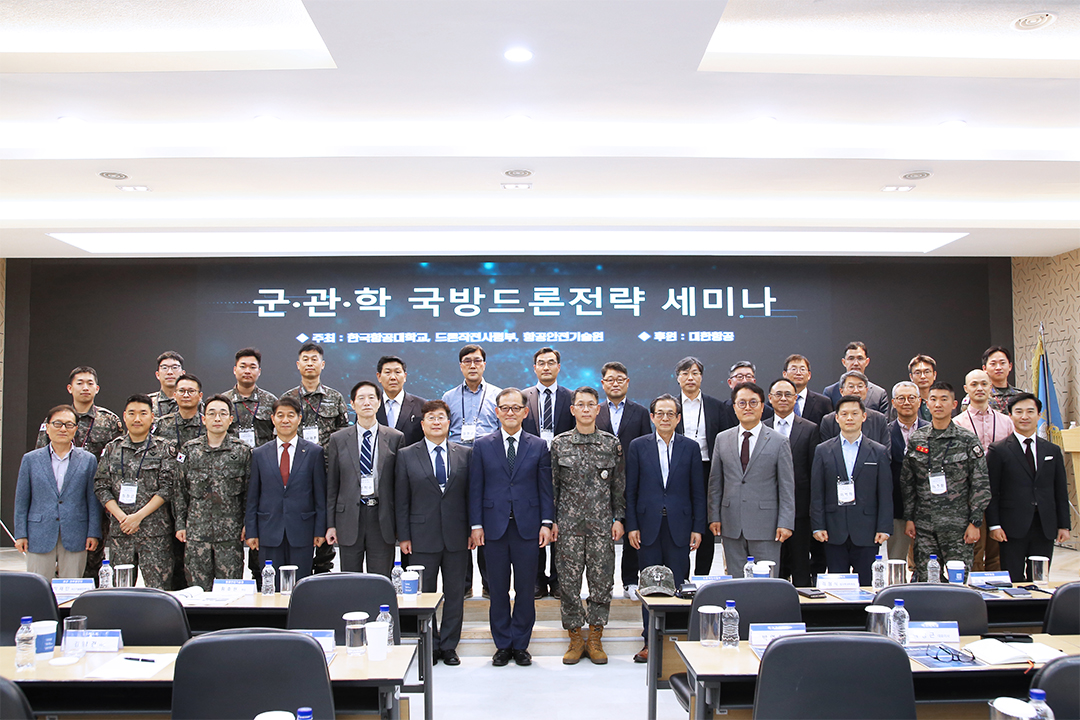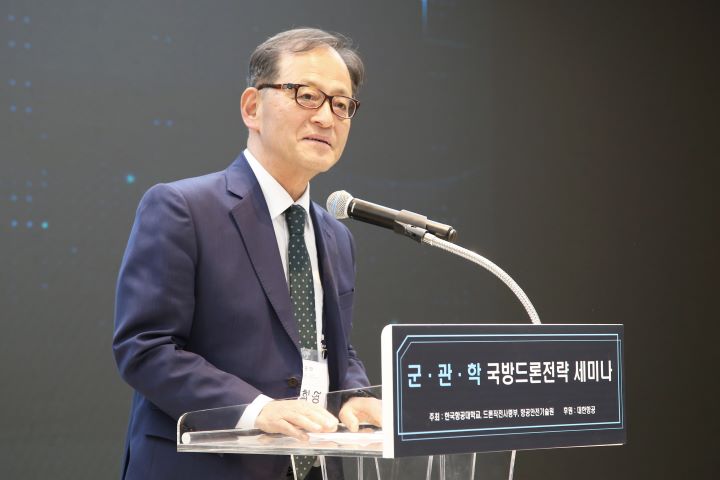“The Future of Warfare Transformed by Drones” — Defense Drone Strategy Seminar Held by Military, Government, and Academia
- 2025-05-29

On May 26 at 2 PM, Korea Aerospace University held the Defense Drone Strategy Seminar at the Vision Hall on campus.Co-hosted by Korea Aerospace University, the Korea Institute of Aviation Safety Technology (KIAST), and the Drone Operations Command, and sponsored by Korean Air, the seminar aimed to explore the future direction of defense drone development in preparation for future battlefields. It also served as a platform to strengthen collaboration among the military, government, and academia.
Drones are rapidly emerging as key assets in military operations worldwide, including surveillance and reconnaissance, precision strikes, communications, and electronic warfare. As they converge with technologies from the Fourth Industrial Revolution, their military applications are expanding even further. In response to these trends, the Republic of Korea's military is actively developing various drone-based strategies.
In line with this global trend, the seminar brought together experts from various sectors to share insights on the current status and case studies of domestic and international defense drone technologies. The participants also discussed ways to collaborate in securing core technologies.The seminar consisted of four sessions. In addition to the co-hosting institutions—Korea Aerospace University, the Korea Institute of Aviation Safety Technology (KIAST), and the Drone Operations Command—twelve experts from organizations such as the Agency for Defense Development (ADD), Korea Military Academy, Korean Air’s Aerospace Research Institute, and LIG Nex1 delivered presentations.

The presenters covered a range of topics, including:△ practical applications and technological trends of defense drones on the battlefield,△ analysis of the technological level of domestic and international defense drones and strategies for securing core technologies,△ future directions for the military use of drones, and △ an overview of defense drone technologies across industry, academia, and research institutes.Each speaker introduced their institution’s research achievements in defense drone technology and offered insights on the future direction of defense drone development, encompassing both hardware and software perspectives.
In particular, professors from Korea Aerospace University proposed key technologies with the potential to fundamentally transform future battlefields. These included the integration of drones with space-based weapon systems, AI-powered combat algorithms, aerial separation and rejoining technologies, and collaborative missions between drones and manned aircraft.They also emphasized that securing these core technologies through a collaborative model involving the military, government, and academia could significantly contribute to building a robust domestic defense drone ecosystem and achieving technological self-reliance.

In his welcoming remarks, President Hee-Young Hurr stated, “This seminar was organized for the first time out of a shared recognition of the need for a forum to discuss the latest trends and research challenges in drone technology to strengthen future defense capabilities. I hope today’s event will serve as a meaningful starting point for building a sustainable drone technology ecosystem.”
Hwang Ho-Won, President of the Korea Institute of Aviation Safety Technology (KIAST), stated, “The military use of drones, combined with Fourth Industrial Revolution technologies, is a key variable that will reshape the battlefield. Based on our experience in safety certification and the establishment of demonstration infrastructure in the civilian drone sector, KIAST will actively support the defense sector by contributing to the development of operational safety measures and technology demonstration systems.”
Following this seminar, Korea Aerospace University plans to continue building a collaborative network with institutions and companies involved in defense drone technologies. The university aims to pursue follow-up initiatives such as regular seminars, joint research projects, and talent development programs in the field.

